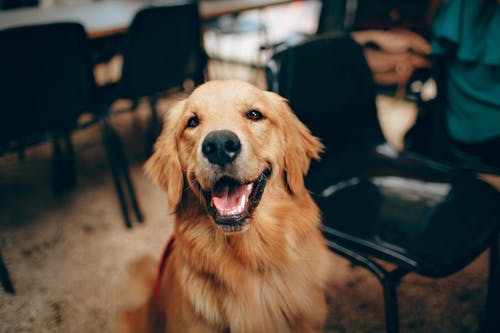The eyes of a healthy pet should be bright, clear, and unclouded by discharge or excessive redness. The eye is a delicate organ, and injury causes excruciating pain. Various factors, including hereditary diseases, traumatic injuries, and aging-related degeneration, can cause eye issues. Therefore, pet owners must remain vigilant in monitoring the health of their pet’s eyes and seek medical attention if anything is amiss.
Here’s what you should know about your dog’s eyes.
Common Indications of Eye Issues
Investigating eye issues in pets as soon as possible is crucial because injury to the eye can cause blindness or permanent damage very quickly. Make an appointment at a 24-hour emergency vet in New Jersey if you see any of the following in your pet:
- Squinting
- Eye rubbing
- Swelling eyelids
- Red inner eyelids
- A dull eye surface
- Cloudiness within the eyeballs
- Tear-stained fur around the eyes
- Bumping into surroundings
- The ‘third eyelid’ coming across the eye
- Excessive tearing or unusual discharges (brown, yellow, green)
- Matter ‘stuck’ on the surface or in the corners of the eye
Remember to pay attention and not take your pet’s eye for granted if you want it to be healthy. Although dogs rely heavily on other senses to get by in daily life, particularly smell, good vision, and eye care are still crucial to their overall health and well-being. After all, in many respects, a dog’s eyes function similarly to a human’s eyes.
If you want to know more about the treatment of diseases and disorders of the eye, you should consult a professional.
How to Maintain the Eye Health of Your Dog
Maintaining your dog’s eye health is integral to its overall well-being. Here are some pointers to help maintain your dog’s eye health:
Regular Check-ups
Regular veterinary check-ups can help identify potential eye problems early on, so they can be treated before they become serious.
Keep the Eyes Clean
Clean your dog’s eyes by removing any dirt with a damp cloth on a regular basis, dust or debris irritating them.
Protect the Eyes
Keep your dog’s eyes protected from wind, dust, and other irritants, mainly if you are dusty or windy. Goggles can also help protect the eyes of some breeds.
Avoid Harmful Chemicals
Avoid harsh chemicals or cleaners around your dog’s eyes, as they can cause irritation or injury.
Watch for Symptoms
Look out for changes in your dog’s eyes, such as redness, cloudiness, or discharge, and seek veterinary attention if you notice any concerning symptoms.
Preventative Care
Some breeds are more prone to eye problems, so it’s vital to be aware of any breed-specific issues and take preventive measures accordingly. You can consult a professional to learn how can vet surgery help.
Proper Nutrition
Feed your dog a balanced diet rich in essential vitamins and minerals, which can help promote good eye health.
Diet for Healthy Eyes
An antioxidant-rich diet can help improve your dog’s eye health. This food should be fed raw unless otherwise stated.
- Blueberries
- Broccoli
- Carrots
- Sweet potatoes (always serve well cooked)
- Kale
- Eggs (lightly cooked or raw)
- Salmon and sardines (raw salmon must be deep-frozen before serving)
For optimum digestion, gently puree the fruits and vegetables. These types of food help reduce the effects of the free radicals produced by oxidation. Like human bodies, cells and tissues can be attacked by free radicals brought on by stress, improper metabolic processes, and a poor diet.
Conclusion
Your dog’s eyes, in addition to a wagging tail, can convey a lot of information, including whether it is time for a walk, how it is feeling, or whether it wants to play. As one of their most valuable and intricate organs, the eyes must function appropriately to be happy for the rest of their lives. Incorporate a healthy diet high in antioxidants to support your pet’s eye health. If you notice any complications, take your pet to the veterinarian.





